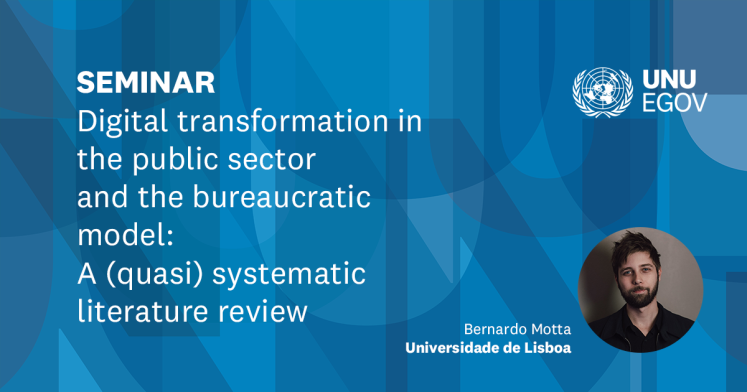Abstract
This paper aims to present an examination of digital transformation within the public sector, emphasizing its interplay with the bureaucratic model of governance. From a theoretical perspective, the paper draws on Max Weber’s principles of bureaucracy, analysing their role amidst contemporary digital transformations. Employing a systematic literature review methodology, the study identifies relevant scholarly work through a structured search across Web of Science Social Science Citation Index (SSCI) and SCOPUS. The review encompasses literature published up to 2023, focusing on the intersection of bureaucratic governance and digital transformation. Utilizing the text mining capabilities of VOSviewer software, a co-word analysis was performed to identify the main topics in the selected records. The study identified 62 articles, mostly published after 2014, with contributions from 116 authors across 44 journals. The results were also synthesized into thematic clusters, providing an overview of the current state of knowledge in this field. Three thematic clusters emerged: 1) Consequences of Digital Transformation Initiatives, 2) Implementation of Digital Transformation, and 3) Street-Level Bureaucracy in the Digital Age. These clusters focus on the impact of technology on public values and accountability, challenges in implementing digital reforms, and the experiences of street-level bureaucrats. This research aims to contribute to the literature by providing a critical assessment of the bureaucratic model in the context of digital transformation, and ultimately offer some insights for policymakers and practitioners dealing with digital transformation initiatives in environments with a high degree of bureaucratization.
Biography
PhD candidate in Public Administration, specializing in Public Policy, at ISCSP – Institute of Social and Political Sciences, University of Lisbon. Holds a Master’s degree in Innovation Economics from ISEG – Lisbon School of Economics and Management, University of Lisbon, and a Bachelor’s degree in Economics from UFRJ – Federal University of Rio de Janeiro. Works as an independent economic and financial consultant, with a focus on public sector innovation, digital transformation, and public policy. Has participated in projects for governmental entities and multilateral organizations. Also serves as Research Manager at the Brazil-Europe Integration Forum (FIBE).


